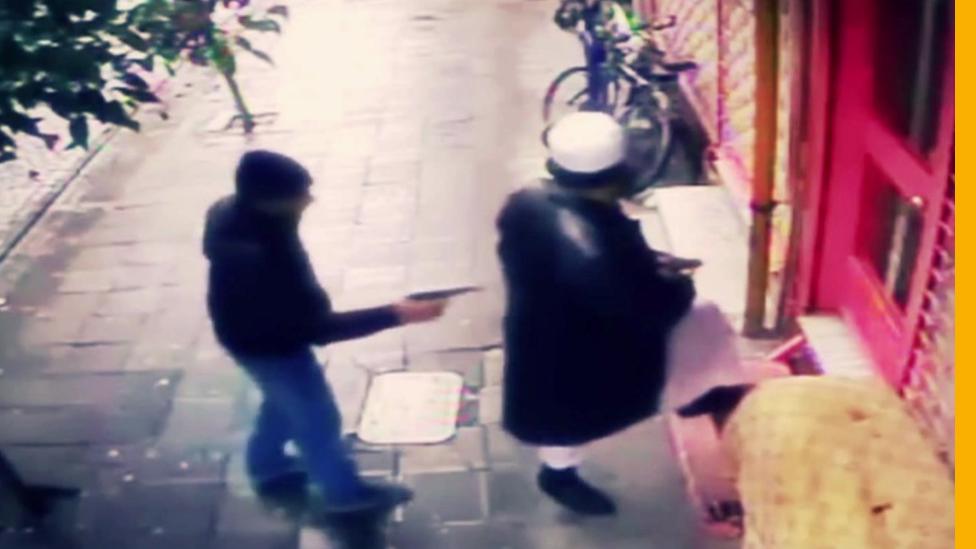Russia and Turkey remain close despite ambassador's murder
- Published
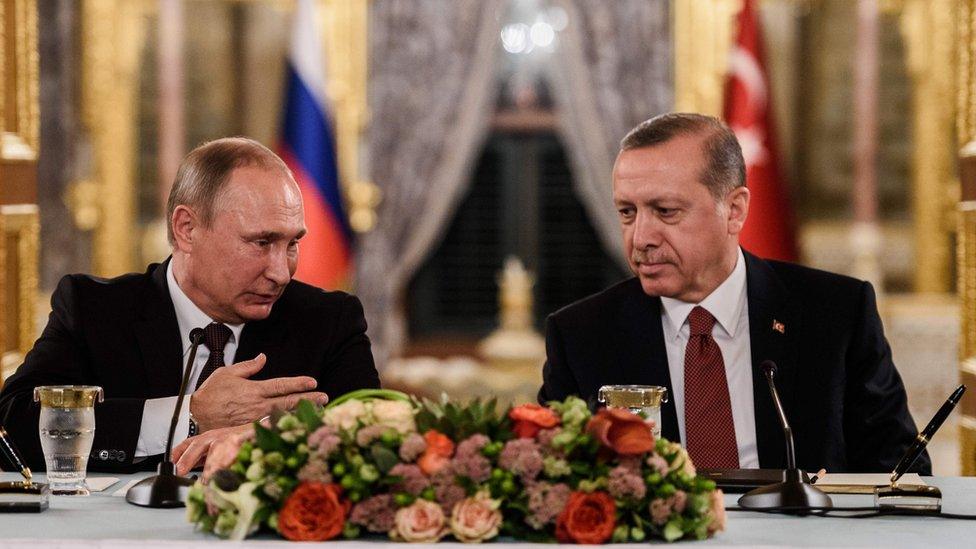
Team of rivals: Putin and Erdogan
Clutching red carnations, they approached the armed police manning the security cordon: four Russian women determined to leave a tribute outside their embassy.
They had known Andrei Karlov well, the ambassador gunned down in Ankara.
And they struggled to hold back their emotion.
"This is a big tragedy for all of us - for all Russian people", said Larissa Lutkova Turkkan, who works in a Russian cultural association here.
"He was a very good man - and a brilliant diplomat."
I ask whether she understands the anger of some here towards the Russian government. She pauses.
"I think I understand - but it is really difficult to talk right now".
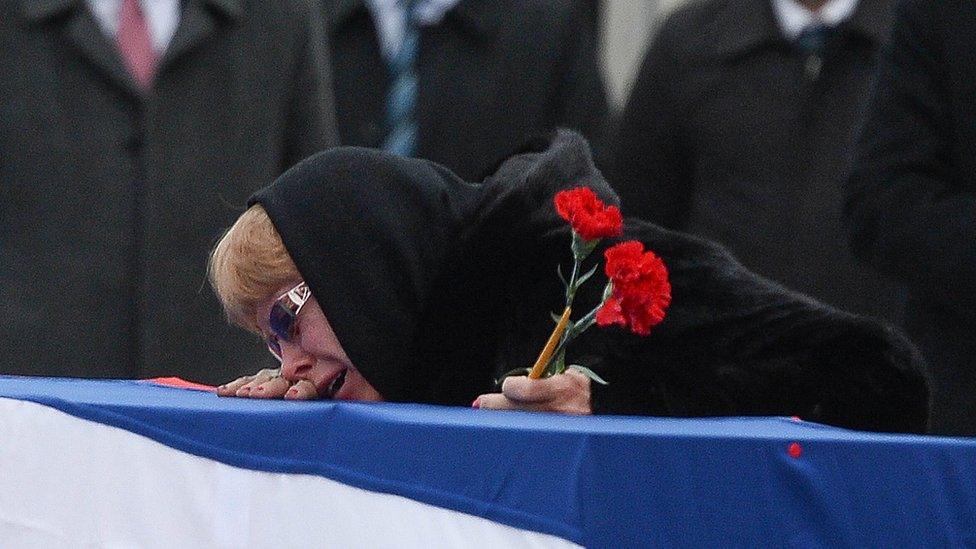
Mr Karlov's wife, Marina, mourned her husband at a ceremony in Ankara before his remains left Turkey
Russia and Turkey have been profoundly shaken by the murder of a seasoned diplomat who colleagues describe as softly-spoken and professional.
And yet it has not prompted a new crisis in bilateral relations as some feared.
Instead, Presidents Erdogan and Putin have used the same language, calling it "a provocation" aimed at derailing ties and vowing that it would not succeed.
In fact it could, conversely, bring together Russia and Turkey against the common enemy of terror, encouraging greater co-operation between two countries that have always had a tricky relationship.
Uneasy neighbours
The Russo-Turkish wars spanned four centuries. And a hundred years since their last military clash, their dispute has continued, with Ankara and Moscow taking opposite sides in Syria.
Turkey has backed the rebels opposed to President Assad, while Russia's military intervention was key to propping up the Assad regime. A year ago, their feud reached a climax as Turkey shot down a Russian bomber on its border with Syria.
President Putin called it "a stab in the back by an accomplice of terror". Moscow said President Erdogan's family was benefiting from oil smuggling by so-called Islamic State.
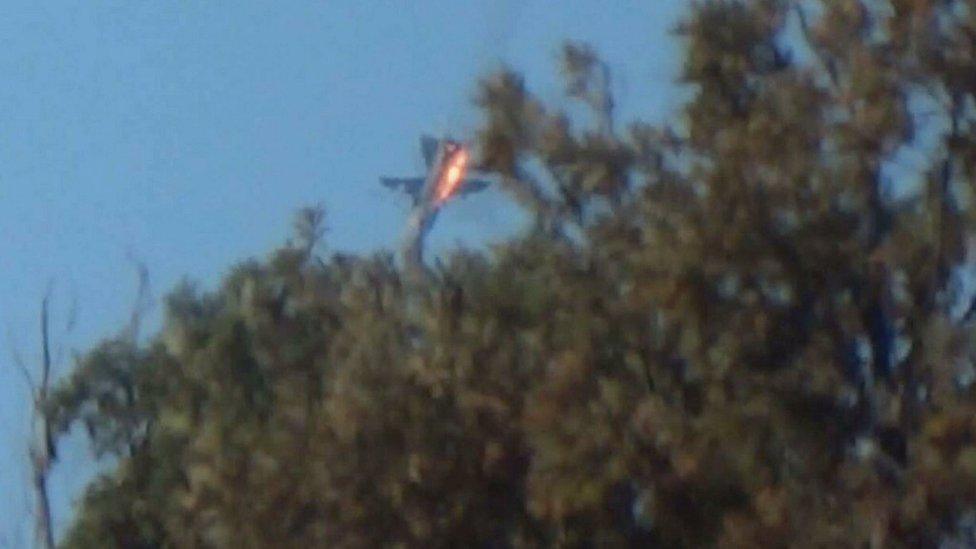
Russia denied that the warplane had crossed Syria's border and violated Turkish airspace
There was the real possibility of a direct military confrontation. For months tempers flared - until President Erdogan wrote a letter of apology to his Russian counterpart, fuelled partly by the need to coax Russian tourists back to Turkish beaches.
Syria is the reason behind the warm words now. As Western powers have seen their influence on the Syrian war implode, they've practically vacated the territory to allow Ankara and Moscow, along with others, to fulfil their respective aims there.
For Turkey the goal is pushing back IS and Kurdish militias and entrenching Turkish influence in northern Syria. For Russia it's been snatching Aleppo back under regime control and securing Assad along with its own powerful role. Turkish officials publicly deny there was a quid pro quo between Ankara and Moscow but it's widely suspected, not least because Turkey has been silent over Russia's bombardment in Aleppo.
And so neither strongman President - Erdogan or Putin - is willing to let the murder of the ambassador get in the way of their Syria rapprochement.
'Don't forget Aleppo'
But the danger for Mr Erdogan is that some Turks have not followed his warming to Moscow, shown by the assassination of the ambassador, when the gunman shouted "don't forget Syria, don't forget Aleppo - as long as they aren't safe, you won't taste safety".
Video shows the gunman moments after ambassador Karlov was shot
"Turkey was at the vanguard of opposing the Syrian regime", says Sinan Ulgen, a political analyst and chairman of the Edam think tank, "and it came with high-pitched rhetoric. That made many here acutely aware of the tragedy of Syria.
"But as Turkey is moving away from that aggressive policy on Syria towards a more realistic path and establishing a common understanding with Russia and Iran, it's caused a reaction among that constituency".
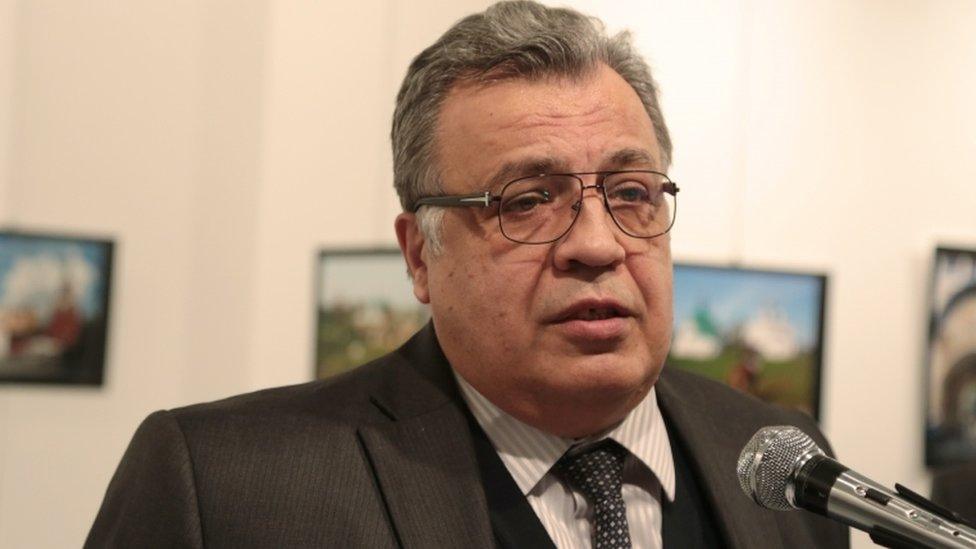
Andrei Karlov was visiting a photo gallery in the Turkish capital when he was murdered
How the murder affects Russian-Turkish relations will in part be determined by the joint investigation that's now under way.
If it finds links between the gunman and Syrian opposition groups, it could reawaken the Syria tensions.
"In that case, Russia would expect more from Turkey in terms of cutting support to the Syrian opposition", argues Sinan Ulgen. "There would be an expectation from Russia and Turkish citizens that Turkey should be more disciplined to stop the infiltration by such groups."
So there's a united, though fragile, front from Ankara and Moscow - for now.
The fundamental fact holding these two forces together is that, lacking many other friends in the world at the moment, Vladimir Putin and Recep Tayyip Erdogan need each other.
- Published20 December 2016
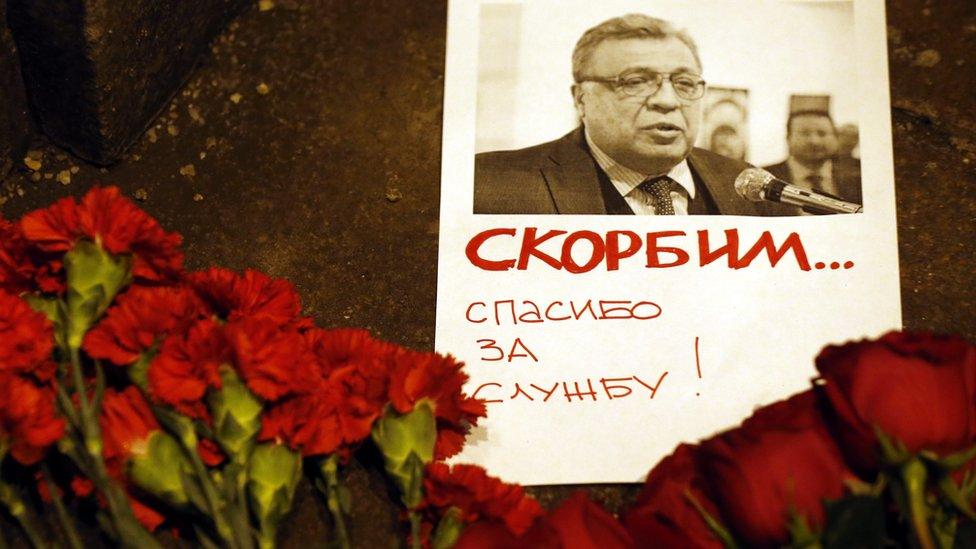
- Published19 December 2016
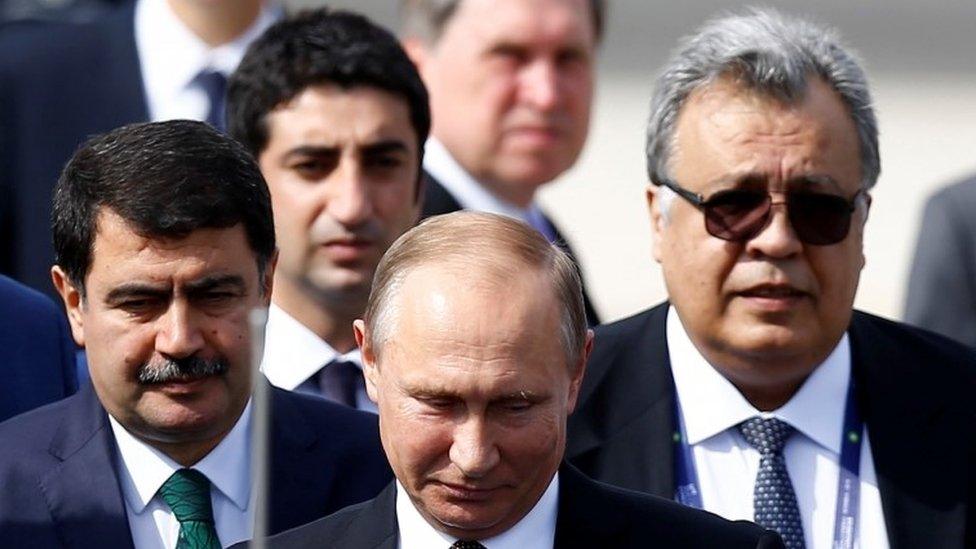
- Published23 December 2016
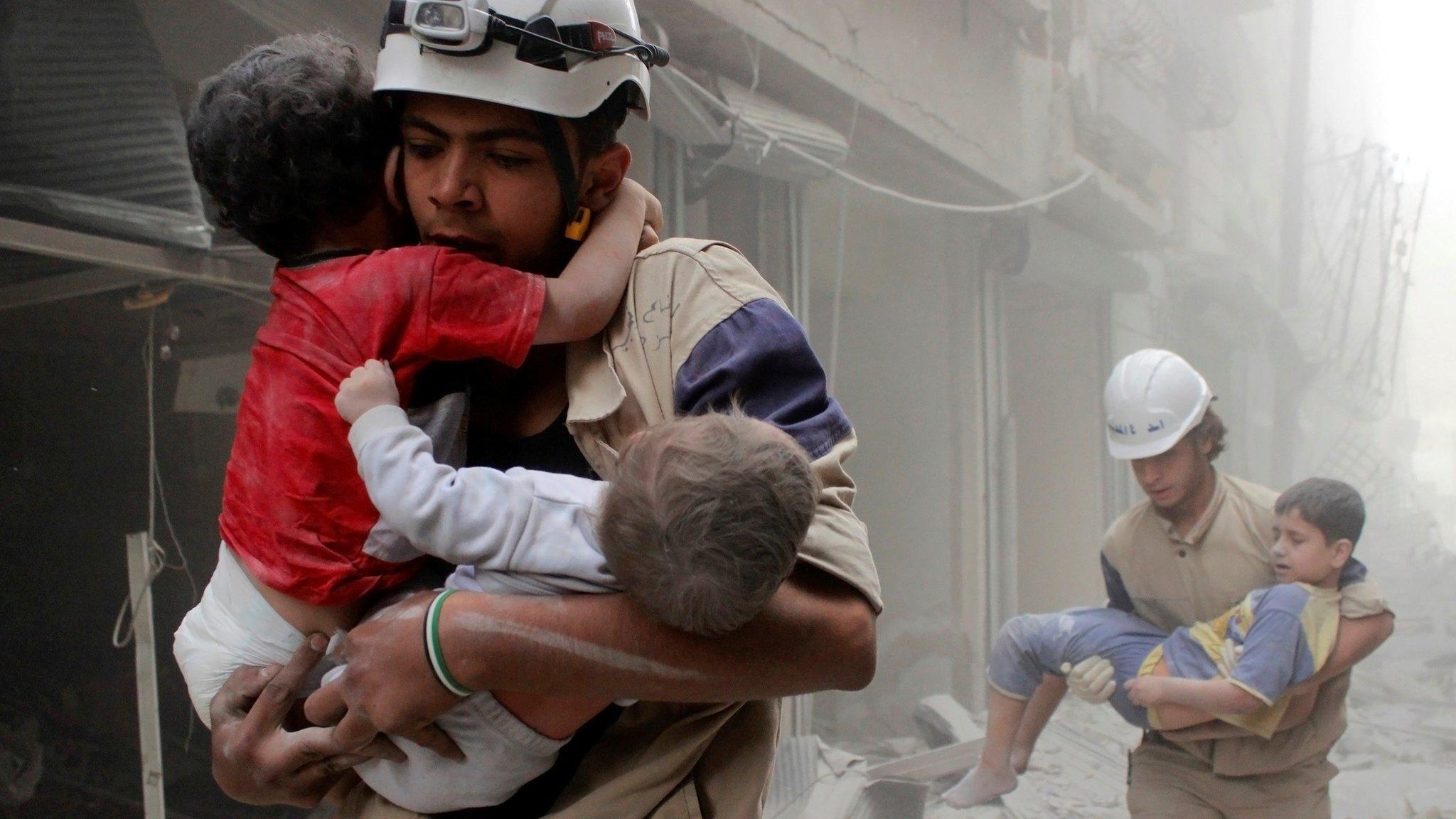
- Published19 December 2016
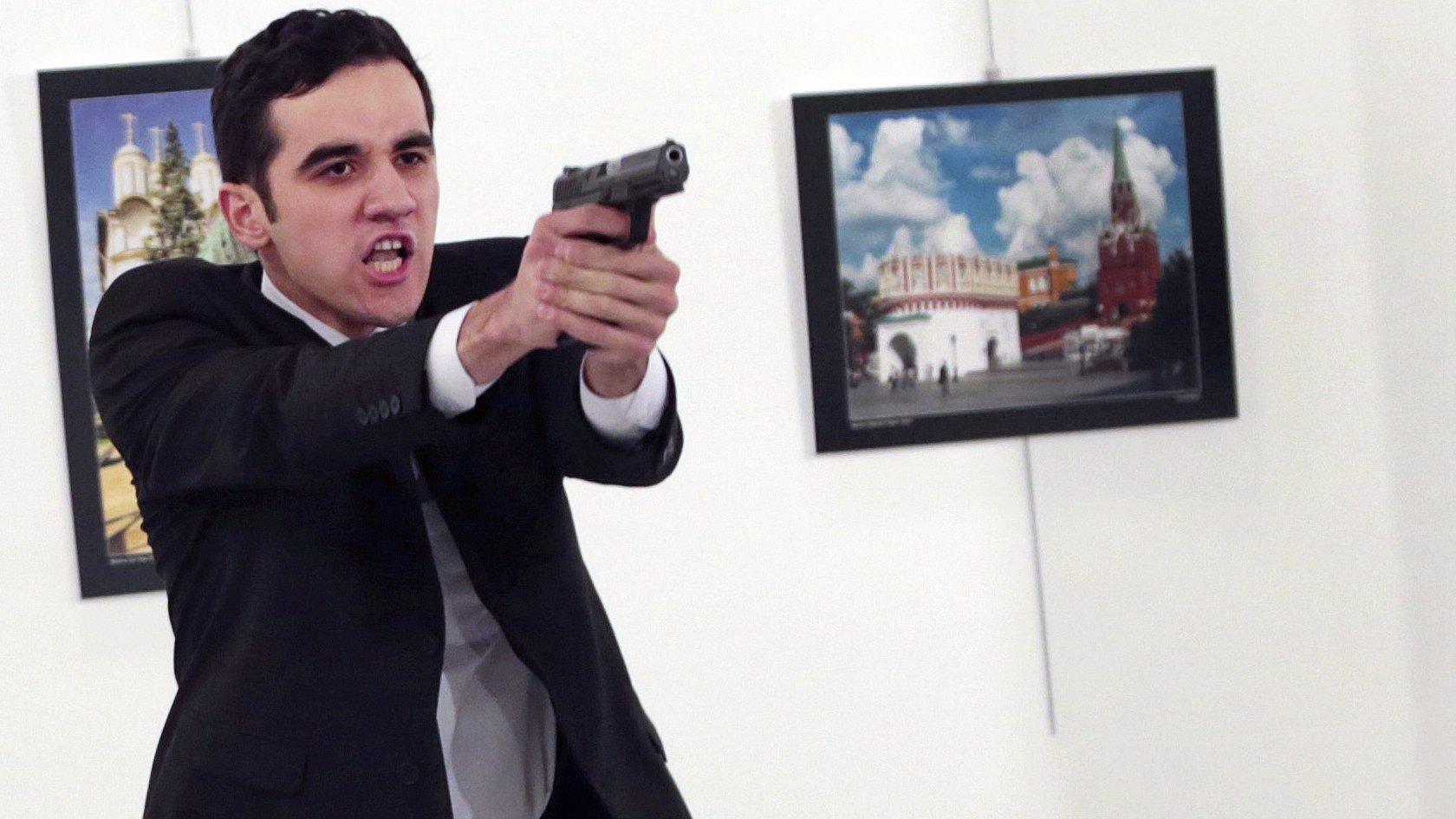
- Published17 December 2016
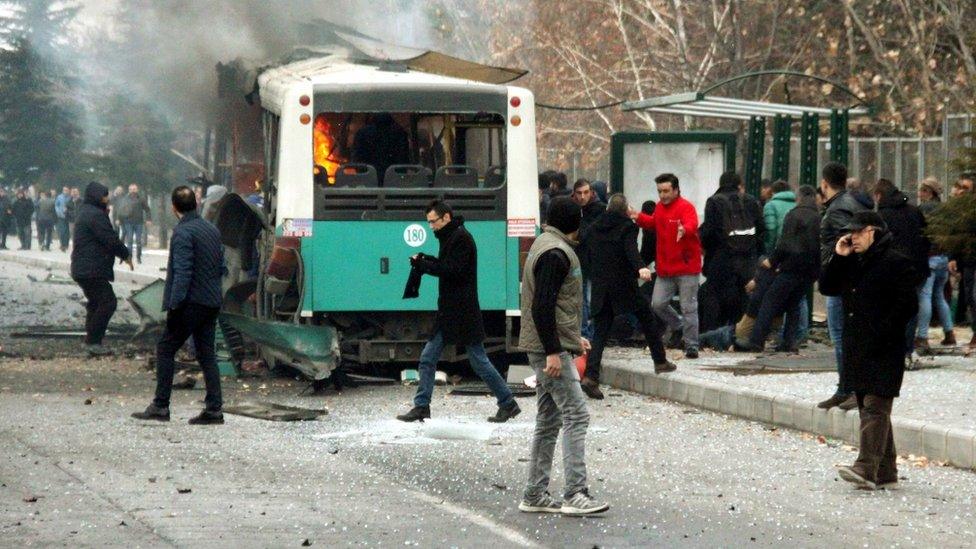
- Published13 December 2016
